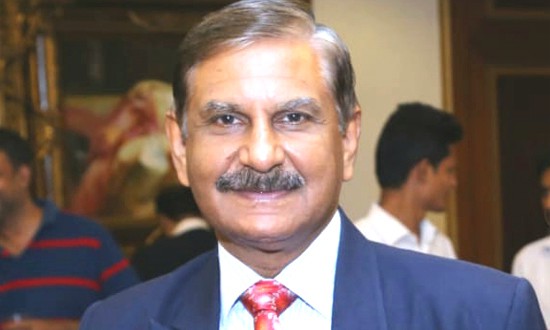Major General Dr. Sunil Chandra is the recipient of Vishisht Seva Medal, a decoration of the Indian armed forces that is awarded to recognize “distinguished service of an exceptional order” to all ranks of the Indian Armed forces. An exemplary result-oriented professional with 36 years of Military Service, Dr. Chandra has worked in various capacities for the development of Indian education system. He has held position of Managing Director, Army Welfare Education Society, and his last profile held in active service was Additional Director General – Army Educational Corps. In an exclusive conversation with the editorial team of Higher Education Digest, Dr. Chandra expresses his views and concerns regarding the quality of education in India.
In 2007, Dr. Manmohan Singh, the then Prime Minister of India, was addressing the crowd gathered to celebrate 150th Anniversary of Mumbai University. He said, “Our university system is, in many parts, in a state of disrepair. The quality of governance of many state educational institutions is a cause for concern. I am concerned that in many States, university appointments, including that of Vice-Chancellors, have been politicized and have become subject to caste and communal considerations. There are complaints of favouritism and corruption. This is not as it should be.” Twelve years passed since then, new Governments have been formed, new Vice Chancellors have taken charge in various universities, however, our state and central universities are still not free from unnecessary interventions.
Our education experts and industry leaders eternally complain about the quality and employability of the graduates being considerably low. But we hardly address the real issues of our dysfunctional educational system that has been producing dysfunctional citizens all these years. “Leadership of our universities are still a major concern,” says Major General Dr. Sunil Chandra VSM, a result-oriented professional with 36 years of Military Service having served in Army and tri-services training establishments and operational areas. “Many of our universities have gone into the hands of industries who consider education as another area of business they can invest. Their children in some cases hardly have exposure to universities and yet are the Chancellors of these universities. Education leadership should be in the hands of people who are educationally oriented. Today, people who have money are managing our academic institutions.”
Indeed, the 3rd largest education system in the world after the U.S. and China struggles to make universities that can compete with their global counterparts. Every year, when global rankings are announced, we discuss about the absence Indian universities in the Top 100 list. Every such discussions would reach in a conclusion that Indian universities do not take research seriously. Dr. Chandra opines, “We cannot blindly say that a research culture is missing in the Indian institutions. There are many reputed colleges and universities in the country that have taken up research in a big way. We can also see many important research publications and patents are being filed by these institutions.” Certainly, we cannot be a hopeless community of education aspirants. With more than 50% of its population below the age of 25 and more than 65% below the age of 35, India’s major strength is its youngsters who can run the world by their rules. But, do we have adequate number of qualified people in our academic institutions who can guide these young talents in the right direction?
“We do have quality faculty members in our universities who can lead the research activities. However, our students are oblivious about their own future. They try to focus on multiple things during their higher education. Some students prepare to write exams, some of them go for jobs, but none of them are fully devoted to take up research as a career,” states Dr. Chandra, who has vast experience in dealing with top universities, running end to end operations of educational institutes and setting up processes from the scratch. At this point, it is important to have a relook of what Dr. Manmohan Singh said in his speech at Mumbai University, “We also need to move away from routine approaches to overcome quality bottlenecks in our university system. We should look at alternative ways of improving the remuneration of professors, at ways of tapping into the large pool of Indian origin teaching manpower spread today across the world’s universities, and of linking up with the best universities across the world to promote cross-fertilization of ideas.”
Collaborating with foreign universities will be the key for many Indian universities. Dr. Chandra says, “Collaborations will bring quality, which is missing in totality. It will give a good desirable exposure and we will also be able to enrich our curriculum through these tie-ups.” It is true that the curriculum of many state and central universities has not been changed for so many years. We still educate our students to work for the past. “The current education system misses the application part of it. Today’s industry wants people who can start working from the day one. Unfortunately, many courses offered in our universities are still generic in nature and active collaborations with global education establishments can bring lot of changes in our education system,” adds Dr. Chandra.
Today, we are fortunate to see the government and universities taking positives strides to bring foreign collaborations in our education system. In fact, the doors are now open for foreign investment in Indian education system. Many Indian universities have also opened their campuses abroad. Students will get benefited a lot from these activities. “Our students need more international exposure through exchange programs with global universities. More than everything, we need to inculcate the spirit of country first. Now, it is the individual first, because of the unemployment prevailing in our society. Ultimately, we need to define certain core values that will help us to make good citizens for our nation,” concludes Dr. Chandra.




